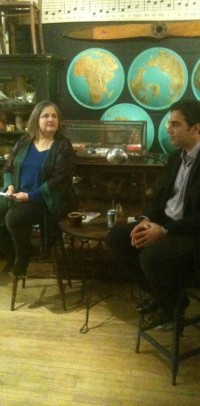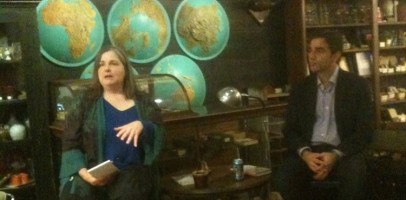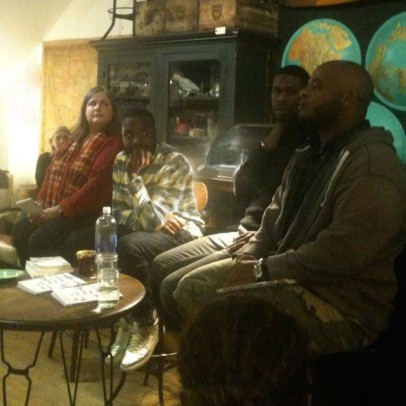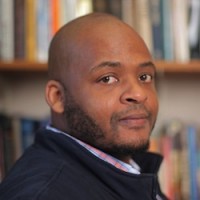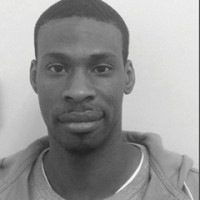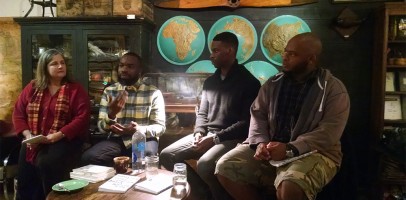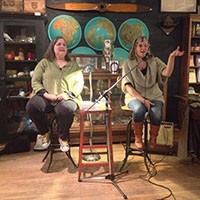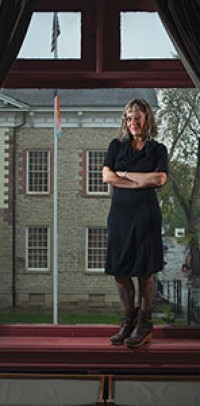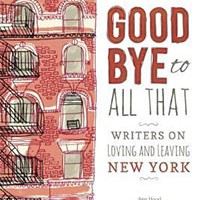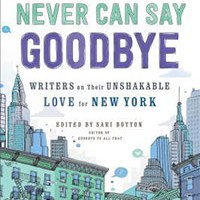JOSEPH LUZZI is a writer and professor of Italian at Bard College. The first child in his Calabrian family born in the U.S., he is the author of the memoir My Two Italies (Farrar, Straus and Giroux, July 2014. He is a frequent contributor of essays and reviews to publications including the New York Times, Los Angeles Times, Bookforum, the London Times Literary Supplement, and many others. His first book, Romantic Europe and the Ghost of Italy (Yale Univ. Press 2008), received the Scaglione Prize for Italian Studies from the Modern Language Association, and he is the author of A Cinema of Poetry: Aesthetics of the Italian Art Film (Johns Hopkins Univ. Press, 2014). His work has been translated into Italian and Portuguese, and he has lectured throughout the world on art, film, literature, and Italian culture.
Read Nina Shengold’s Chronogram profile.
“Writing With All Five Senses” – The Exercises
Joseph Luzzi
Nina Shengold and Joseph Luzzi
Nina Shengold and Joseph Luzzi
Hard to believe we’ve reached the end of our Fall 2014 Word Café series! But Joseph Luzzi finished our 12-course literary banquet with style, reading from his new memoir My Two Italies, and discussing his transition from scholarly writing (Romantic Europe and the Ghost of Italy and A Cinema of Poetry: Aesthetics of the Italian Art Film) to more personal writing. The key was our discussion topic: “Writing With All Five Senses.”
Joe described coming home after school in the afternoon, hoping for the aroma of his mother’s homemade bread, and being greeted instead by the noxious fumes of boiling tripe. It was the unbidden memory of that smell, he says, that started his writing on a new path. (“Proust got madeleines, I got boiled cow stomach,” he quipped.)
The sense of smell conveys the strongest memories, he says. But sounds, tastes, and textures–“things you can get your hands dirty with”–are equally evocative, and ground your writing in sensual details that connect the reader. Sight is less physical and more familiar–it’s the “go-to” sense for description. Nina commented that it’s often useful to think about which sense is dominant in a fictional character and explore that imagery.
Joe also spoke about the need for spontaneity in writing: “If you turn the screw too many times, you wipe out the threads. Trying too hard can mean losing the joy and flow.” He reminded us that everyone has a natural idiom, something we know well and can talk about fluidly, in our natural voice. “Tell that story,” he said. “Write the book you really need to write.”
JOE’S EXERCISE
Think about something you’ve already written and reconceive it, letting the senses activate the ideas. Bring what was in your mind into the body, the physical details of the experience.
NINA’S EXERCISE
Write about a specific family meal or dish, using all five senses to describe its preparation and consumption. Happy Thanksgiving!

